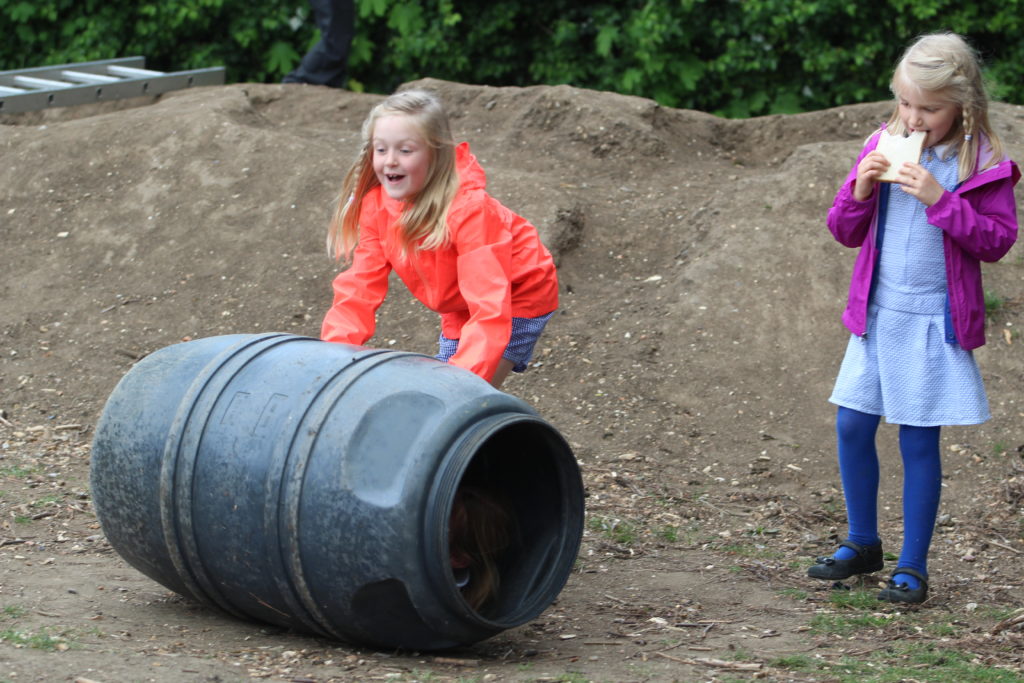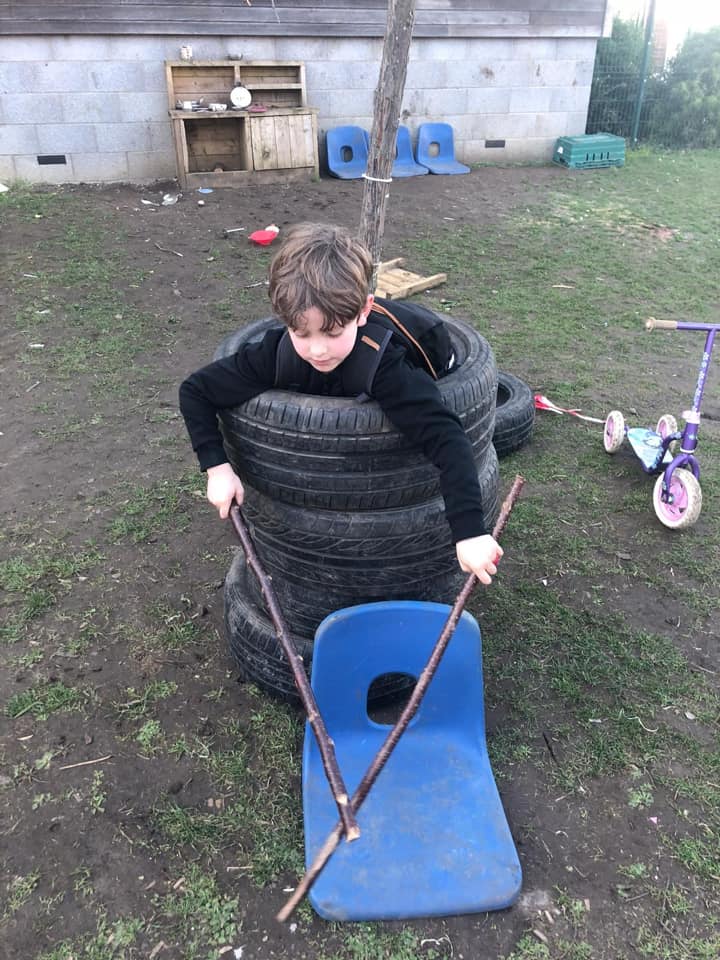Does play always have to be fun?

This question was asked to me and it gave me food for thought, is play always fun? When we think of play or even remember play experiences as a child, we usually think of happy times, playing sports, running in the trees, biking or playing hide and seek.
However, I’m sure there were times that we played something we didn’t want to in order to fit in, be with friends or pass the time. These might not be memories we remember, however, if we really think back, these times definitely took place.
Process over end result.
When we, as Playworkers, look at play as a process, the “doing” is more important than what is created at the end. As a parent, you may look forward to your child coming home with a pretty picture, something they made from junk modelling, a beautiful Mothers/Father’s Day card or a clay model. However, for Smartkidz, you don’t usually see these things coming home, photos may look messy on social media and our displays of art are not always beautiful. These things are usually what adults want to see but this isn’t usually important to children.
Tears and tantrums, but still playing!
There are times, where the finished result of the experience outweighs the fun of the process. I observe my own daughter a lot attempting things that she finds difficult or, for her height, may not be possible. For example, just last week she was playing on an obstacle course created for older children, the distance between the rope her feet were on and the rope her hands needed to hold to traverse across were to far apart. We had lots of tears, stomping and anger around the fact she couldn’t do it. With a bit of help pulling the top rope down to her level, she came off the other end happy and proud. When we got home, her mum asked her what we did this morning and her response was “we played at the park”. My observation would be that this play process was not fun however the end result of completing what she set out to do outweighed the fun of playing and she still saw this as play.

Fun scared!
It is ingrained within humans that fear is bad, fight or flight senses take over naturally in scary situations, in children this is stronger to keep them safe, these senses are stronger in some children then others. My son struggles with low level anxiety; any slightly scary situation can be heightened in his head. One day we were walking along the beach and there was a wall, it was quite high and he asked if he could walk across it. I lifted him up onto the the wall and he immediately asked to get down, I asked him why, “it’s too scary.”
I said that although something can be scary it can also be fun, “like fun scared?”
He continued across the wall and when he got to the end he got down and carried on walking along the sand. Throughout his wall walk, I could tell he wasn’t massively enjoying it but the smile on his face when he came down showed that the process was not fun but the end result out weighed the process, I would suggest that he did not find this play “fun”. Fun scared is a phrase I use a lot now with all children when they find themselves is scary situation in play.

“IM BORED!”
From an out of school point of view, this makes decisions around when to intervene difficult. As a business we want children to always enjoy their time at Smartkidz, not be bored and to go home full of happy memories and excitement, in reality, this is neither ALWAYS possible or part of “play”. Play is not always fun, boredom creates creativity and sparks interesting ideas, children learn to take part in things that they do not like to become part of a group, keep with friends or pass some time, this is ok, this is how we become part of society, how me make friendships, how we overcome boundaries, remove ourselves from our comfort zones and realise we can cope in difficult or uncomfortable situations.
Stephanie Lee, PsyD, director of ADHD and Behaviour disorders centre at the child mind institute says “The truth is, its ok for kids to be bored. In fact, boredom helps kids develop valuable skills. For starters, it helps build tolerances of less-than-ideal experiences. Boredom helps promote planning strategies, problem solving skills, flexibility, and organisational skills”.

The job of the Playworker
As play workers we may not jump in the minute a child feels bored or grumpy because their friends are playing something that they don’t want to play. This doesn’t mean that the job of a playworker is easy, we don’t just stand back and let the kids get on with it. Play workers need to use their knowledge of play, the environment, individual needs of the child, age of child, time of day (the list is endless), to make a final decision on if to intervene or use specific techniques to wait, observe and allow time for the child to make their own decision. Usually children can initiate their own play, however at time they need a little bit of help along the way.
Conclusion
Children’s play is not always fun, children are sometimes bored and something that is scary isn’t always a negative experience, however, if we intervene too early, we could stop amazing play opprtunities and creativity being ignited by children.
As adults supporting children, be that at home as a parent, lunchtime supervisor, pre school practitioner or play worker, it isn’t about making sure children are playing with someone with a big smile and feeling safe all of the time, its about using our knowledge of play and the individual children to manage each situation, allowing each situation to take its own cause before stepping in and taking over.
